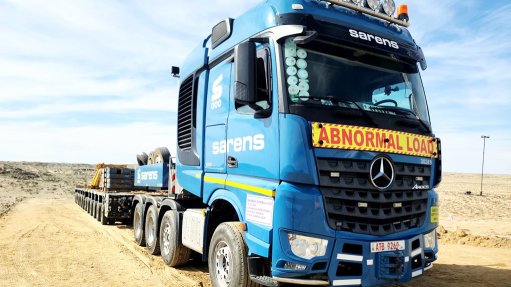Dirty energy
Clean energy has become a buzzword across the globe, including in our sub-Saharan Africa neck of the woods, where the International Renewable Energy Agency is projecting renewables will comprise 67% of the energy mix by 2030 – if correct policies and legislation are put in place and those with the requisite investment are forthcoming.
Countries including South Africa, Kenya and Ethiopia have committed to accelerating the deployment of renewables and are leading the energy transition charge in the region. Smaller countries, such as Cape Verde, Djibouti, Rwanda and eSwatini, have also unveiled ambitious targets of their own, while many others are following suit.
But, by dangling finance for coal-fired power plants, China – which is the world’s biggest polluter – appears to be dirtying sub-Saharan African countries’ clean energy ambitions.
The Chinese are currently financing seven coal-fired power stations with a combined nameplate capacity of 11 874 MW across the Africa continent – in Morocco, Cote d’Ivoire, Tanzania, Zimbabwe and South Africa. Another 13, which at completion will be capable of generating 32 174 MW, are under consideration. Bar one in Egypt, the planned plants will be built in sub-Saharan Africa. Citing the US’s Boston University Development Policy Centre, CNN reported in December that major Chinese financiers of African coal-fired power station projects included the China Development Bank and the Export-Import Bank of China, which, between them, had provided $6.5-billion since the turn of the millennium. The global outlay by the two financial institutions during the same period is estimated at $51.8-billion.
The South African coal-fuelled power station that is being part-funded by the Chinese is Kusile, in Mpumalanga province. As readers of this publication would recall, Eskom signed a $2.5-billion loan agreement with the China Development Bank in July 2018, during Chinese President Xi Jinping’s State visit to this country, with the State-owned electricity utility’s then CEO saying at the time: “The facility will form part of the funding of Eskom’s build programme, specifically the Kusile power station. This long-term government-guaranteed facility will allow Eskom to draw down on the facility up to a period of five years from the effective date.”
To the dismay of South African opponents of coal as an energy source, one of the 13 coal-fired power stations that the Chinese have said they stand ready to finance is located in this country. It is the planned 3 000 MW Musina-Makhado power station, proposed to be built as part of the 6 000 ha Musina-Makhado Special Economic Zone, which has a reduced tax rate of 15%, compared with much higher levels for other companies operating in the country. The financiers of the planned project will include Chinese public- and private-sector entities, with the Power Construction Corporation of China alone having pledged $4.5-billion of the $10-billion price tag.
Also known as PowerChina, the Power Construction Corporation of China is also building a big coal plant in Zimbabwe, the $4.2-billion Sengwa plant, which will generate 2 800 MW when all its eight units are operational.
China’s continued, and increasing, financing of African plants that burn coal to generate electricity contrasts with the retreat of financial institutions from Japan, the US and Europe from this space. Even our continental lender, the African Development Bank, balked at bankrolling a coal project in Kenya and has stated that it will not be financing coal plants in future.
As some observers have remarked, the stance of the Chinese financial institutions could undermine efforts to mitigate global warming. It also smacks of double standards, as, domestically, China has been moving towards more sustainable power solutions, having set a target to cut coal’s share of the country’s total energy capacity to 50% by 2030.
It’s about time African environmental activists ratchet up pressure on Chinese financiers of dirty coal.
Article Enquiry
Email Article
Save Article
Feedback
To advertise email advertising@creamermedia.co.za or click here
Announcements
What's On
Subscribe to improve your user experience...
Option 1 (equivalent of R125 a month):
Receive a weekly copy of Creamer Media's Engineering News & Mining Weekly magazine
(print copy for those in South Africa and e-magazine for those outside of South Africa)
Receive daily email newsletters
Access to full search results
Access archive of magazine back copies
Access to Projects in Progress
Access to ONE Research Report of your choice in PDF format
Option 2 (equivalent of R375 a month):
All benefits from Option 1
PLUS
Access to Creamer Media's Research Channel Africa for ALL Research Reports, in PDF format, on various industrial and mining sectors
including Electricity; Water; Energy Transition; Hydrogen; Roads, Rail and Ports; Coal; Gold; Platinum; Battery Metals; etc.
Already a subscriber?
Forgotten your password?
Receive weekly copy of Creamer Media's Engineering News & Mining Weekly magazine (print copy for those in South Africa and e-magazine for those outside of South Africa)
➕
Recieve daily email newsletters
➕
Access to full search results
➕
Access archive of magazine back copies
➕
Access to Projects in Progress
➕
Access to ONE Research Report of your choice in PDF format
RESEARCH CHANNEL AFRICA
R4500 (equivalent of R375 a month)
SUBSCRIBEAll benefits from Option 1
➕
Access to Creamer Media's Research Channel Africa for ALL Research Reports on various industrial and mining sectors, in PDF format, including on:
Electricity
➕
Water
➕
Energy Transition
➕
Hydrogen
➕
Roads, Rail and Ports
➕
Coal
➕
Gold
➕
Platinum
➕
Battery Metals
➕
etc.
Receive all benefits from Option 1 or Option 2 delivered to numerous people at your company
➕
Multiple User names and Passwords for simultaneous log-ins
➕
Intranet integration access to all in your organisation

















